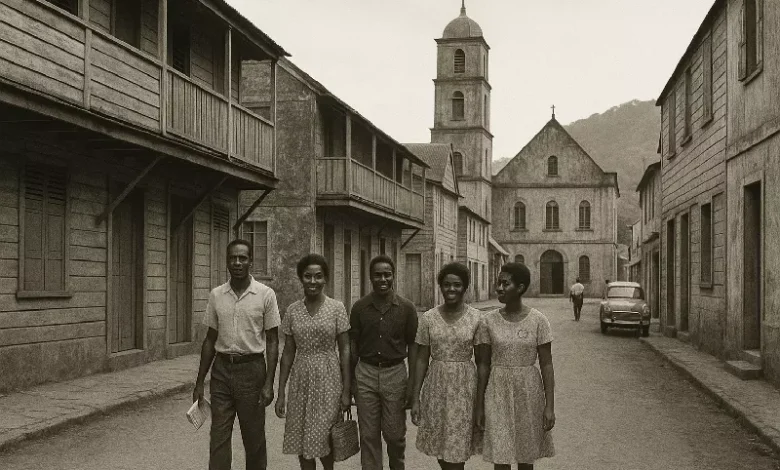West Indies Act of 1967

The West Indies Act of 1967 significantly influenced Dominica’s journey toward full independence. Through this legislation, Dominica was granted associated statehood, gaining control over its internal affairs while the United Kingdom retained responsibility for defence and external relations. This period marked a turning point in Dominica’s governance, economy, and national identity.
Purpose and Intent of the West Indies Act of 1967
The West Indies Act of 1967 was designed to support the gradual political development of Britain’s Caribbean colonies. Following the collapse of the West Indies Federation in 1962, Britain sought new constitutional arrangements that offered a middle ground between colonial rule and complete independence.
The Act allowed small Caribbean territories, such as Dominica, Saint Lucia, Saint Vincent, Grenada, and Saint Kitts and Nevis, to advance self-governance without rushing into complete sovereignty.
Key purposes included:
- Establishing Associated Statehood as a formal legal status.
- Granting internal self-government to selected territories.
- Retaining British responsibility for external affairs and defence.
- Providing a legal path to full independence if requested.
Major Provisions of the West Indies Act of 1967
The Act included several critical points that shaped Dominica’s constitutional evolution:
- Establishment of Associated States: Section 1 of the Act legally declared that territories like Dominica would become an Associated State of the United Kingdom. These states had complete legislative and executive authority over their internal affairs.
- Retention of British Responsibility for External Affairs: Although Dominica could legislate freely internally, matters such as treaties, defense, and international diplomacy remained under British control. However, Britain was required to consult the government of the Associated State before taking action.
- Constitutional Protection and Changes: Section 5 outlined that changes to the constitution of an Associated State could only occur with the agreement of that State’s legislature. This provision protected Dominica from unilateral amendments by the British Parliament.
- Pathway to Full Independence: The Act contained mechanisms allowing an Associated State to move toward full sovereignty. If Dominica’s legislature passed a resolution requesting complete independence, Britain was obligated to facilitate the process, which led directly to Dominica’s independence in 1978.
- Continuation of Legal and Institutional Structures: Under the Act, existing courts, civil service systems, and police forces remained in place but were transferred under local control. It established the legal continuity necessary for political stability during the transition.
The Act’s Immediate Impact on Dominica
Through the West Indies Act of 1967, Dominica adopted a new constitution that formalised the office of the Premier of Dominica, a role first occupied by Edward Oliver LeBlanc. The Government of Dominica gained autonomy over education, health, finance, agriculture, and internal security.
Britain’s limited oversight allowed Dominican leaders to implement crucial rural development programs, public service reforms, and national planning initiatives without external interference. Importantly, Britain could no longer legislate for Dominica without its consent.
The Associated State arrangement encouraged political maturity, administrative experience, and economic experimentation, preparing Dominica for the challenges of full independence.
Legal and Political Views on the West Indies Act
Legal scholars and historians view the West Indies Act of 1967 as a pragmatic but imperfect transition model:
Positive Views:
- It respected the right of self-determination.
- It gave small territories a gradual, safer path to independence.
- It fostered political and constitutional stability in the Caribbean.
Critical Views:
- Some argued it preserved too much residual British influence, especially in defence and external relations.
- Critics noted that economic dependency on Britain continued despite political autonomy.
- The Act delayed full sovereignty, leading some nationalist movements to agitate for independence more quickly.
However, the arrangement largely succeeded for Dominica. It gave Dominica a “test run” at governance and institution-building before independence was declared in 1978.
Key Leaders and Movements
Dominica’s progress during the West Indies Act era was led by figures such as:
Edward Oliver LeBlanc
Edward Oliver LeBlanc, as Premier, prioritised rural development, access to education, and social reforms. His leadership laid the groundwork for Dominica’s future sovereignty, both politically and administratively.
Patrick Roland John
Patrick Roland John succeeded LeBlanc in 1974. He accelerated Dominica’s push toward full independence, which was achieved on November 3, 1978. This achievement marked a critical historical moment built on the reforms initiated under the Act.
Political movements such as the Dominica Labour Party (DLP) and emerging advocacy from the Dominica Freedom Party (DFP) played critical roles in shaping the island’s new political culture.
Broader Impacts on Dominica’s Society and Economy
The era following the West Indies Act of 1967 saw notable advancements:
- Strengthened local governance, leading to the establishment of key organisations like the Dominica Civil Service Association.
- Expansion of education and healthcare services throughout the island.
- Focus on economic diversification to reduce heavy dependence on the banana industry.
- Laying the foundation for future initiatives, such as tourism promotion through the Dominica Tourist Board.
Additionally, there was a noticeable increase in the promotion of Dominica’s cultural experiences, fostering a stronger national identity and pride.
Road to Full Independence
By the mid-1970s, public discourse in Dominica shifted toward full self-rule. Encouraged by the successes under Associated Statehood, leaders initiated negotiations for full sovereignty. In 1978, Dominica transitioned from Associated State to fully independent republic status, completing the trajectory first set in motion by the West Indies Act of 1967.
Dominica’s independence was a legal achievement and a reflection of the institutional maturity and national readiness developed during its decade as an Associated State.The




